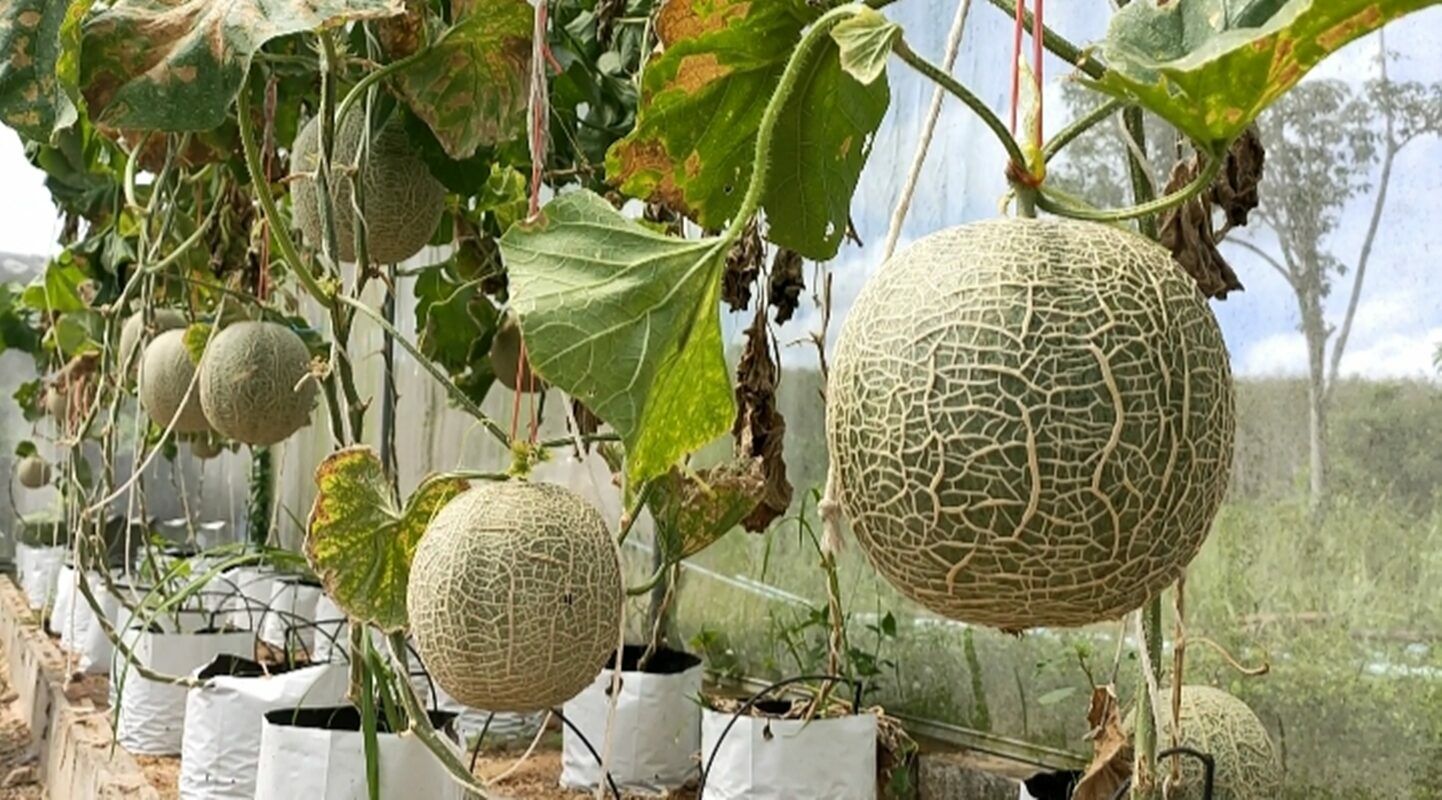From rubber to riches: Thai farmer’s melon metamorphosis in southern Thailand reaps sweet success

A rubber plantation farmer transformed his life by rooting out rubber trees and converting his land into a greenhouse for melon farming in Khuan Kalong District, Satun Province. The venture proved to be more profitable than anticipated, turning him from a low-income farmer into an exemplar of agricultural success.
Previously a rubber plantation owner, Somsak Jantrakul decided to repurpose his land to cultivate vegetables. The switch yielded better-than-expected results, leading to a remarkable boost in his income. His success story has thus transformed him into a model for other farmers.
Initially, Somsak started by supplying vegetables to local supermarkets. Later, he received funding from the agriculture office of Khuan Kalong to set up a greenhouse for melon farming. The former rubber plantation farmer undertook three rounds of melon cultivation to determine the best variety.
He experimented with four varieties: Sanwan, Yok Kao, Rainbow Sweet, and Golden Egg, finally achieving success with two of them. Each cultivation round took 75 days, bringing in a revenue of 40,000 baht per round, a significant improvement compared to rubber farming.
The melon farmer shared that after three rounds of trials and errors, he selected two varieties, Sanwan and Golden Egg. Sanwan has an orange, sweet, and soft flesh, while the Golden Egg is a popular golden-skinned variety with a delicious, sweet taste and a fragrant aroma. Somsak revealed that it feels like chewing jelly when eaten and is good for health due to its high antioxidant content, multiple vitamins, low fat, and low calories, and is cholesterol-free.
“Sanwan and Golden Egg melons are not too large, weighing 2 to 2.5 kilogrammes per fruit, selling at 100 baht per kilogramme. These are pesticide-free melons that consumers can safely consume. The market for these melons is general and at hospitals. This round has yielded 40,000 baht, and the next round of produce will hit the market during Valentine’s Day next year, which is expected to see increased bookings.”
Farming experts
Chiriyaphon Angsaprab, an agricultural promotion expert, mentioned that the Khuan Kalong agricultural office had supported the Trichoderma fungus to prevent and control diseases. A melon’s main enemy is a fungus, so care must be taken from soil preparation, planting, and post-planting, and before harvesting, water should be withheld to increase the sweetness of the melons, reported KhaoSod.
Thanaswat Phimsen, an agricultural promotion expert from Khuan Kalong’s agricultural office, added that this farm had experimented with melon cultivation to select varieties. Now, they have successfully identified two varieties, Sanwan and Golden Egg, both of which are highly disease-resistant and suitable for our local weather, offering a delicious, crispy, and fragrant taste.
This farm has achieved a safety standard, and anyone interested can learn about the cultivation method and ask for more details at the telephone number 080-036-8055 or contact via Facebook: Suan Phak Ta Waan.
Latest Thailand News
Follow The Thaiger on Google News:


























